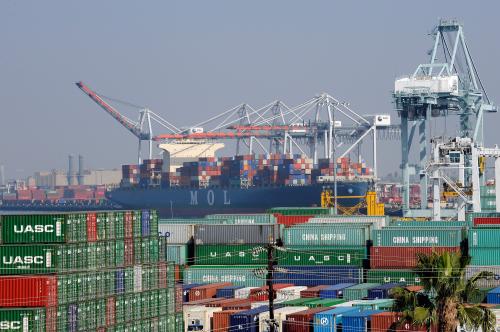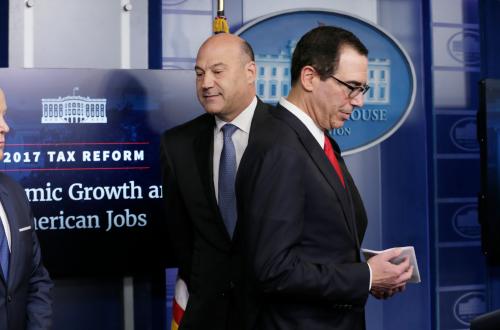This paper is part of the Fall 2017 edition of the Brookings Papers on Economic Activity, the leading conference series and journal in economics for timely, cutting-edge research about real-world policy issues. Research findings are presented in a clear and accessible style to maximize their impact on economic understanding and policymaking. The editors are Brookings Nonresident Senior Fellow and Northwestern University Economics Professor Janice Eberly and James Stock, Brookings Nonresident Senior Fellow and Harvard University economics professor. Read the rest of the articles here.
The U.S. corporate tax rate is one of the highest in the world and much has been made about the prospects of corporate tax reform in 2017. Both House Republicans and President Trump have released their visions of changes to corporate taxes. But what would these proposals mean for the economy? Are they targeting the aspects of the tax code that need changing?
At the Fall 2017 Brookings Papers on Economic Activity conference, leading tax policy experts discussed these issues among others, including:
- Alan Auerbach, of the University of California, Berkeley, attempts to demystify the Destination-Based Cash-Flow Tax (DBCFT), which he says is poorly understood by many in government, the business community, and economics.
- Martin Feldstein, of Harvard University, argues the coming year offers the opportunity to fix problems of the corporate tax system that accumulated over many decades and suggests five areas for improvement.
- Gita Gopinath, of Harvard University, examines the macroeconomic effects of a border-adjustment tax and looks at whether its possible for a border adjustment tax to be revenue neutral.
- James Hines, of the University of Michigan, looks at the U.S. corporate tax rate, which is the highest among OECD countries, and finds that despite significant deductions and exclusions, the rate places high burdens on U.S. businesses.
Alan Auerbach is on the board of academic advisors for the International Tax Policy Forum (ITPF). The ITPF does not advocate for particular policies, and the author did not receive financial support for this paper from the ITPF. The author did not receive financial support from any firm or person for this paper or from any firm or person with a financial or political interest in this paper.
Gita Gopinath received financial support for this work from the National Science Foundation under grant no. 1628874.
James Hines is research director for the International Tax Policy Forum (ITPF). The ITPF does not advocate for particular policies, and the author did not receive financial support for this paper from the ITPF.
With the exception of the aforementioned, the authors are currently not an officer, director, or board member of any organization with an interest in this paper. No outside party had the right to review this paper prior to circulation.
The Brookings Institution is committed to quality, independence, and impact.
We are supported by a diverse array of funders. In line with our values and policies, each Brookings publication represents the sole views of its author(s).









